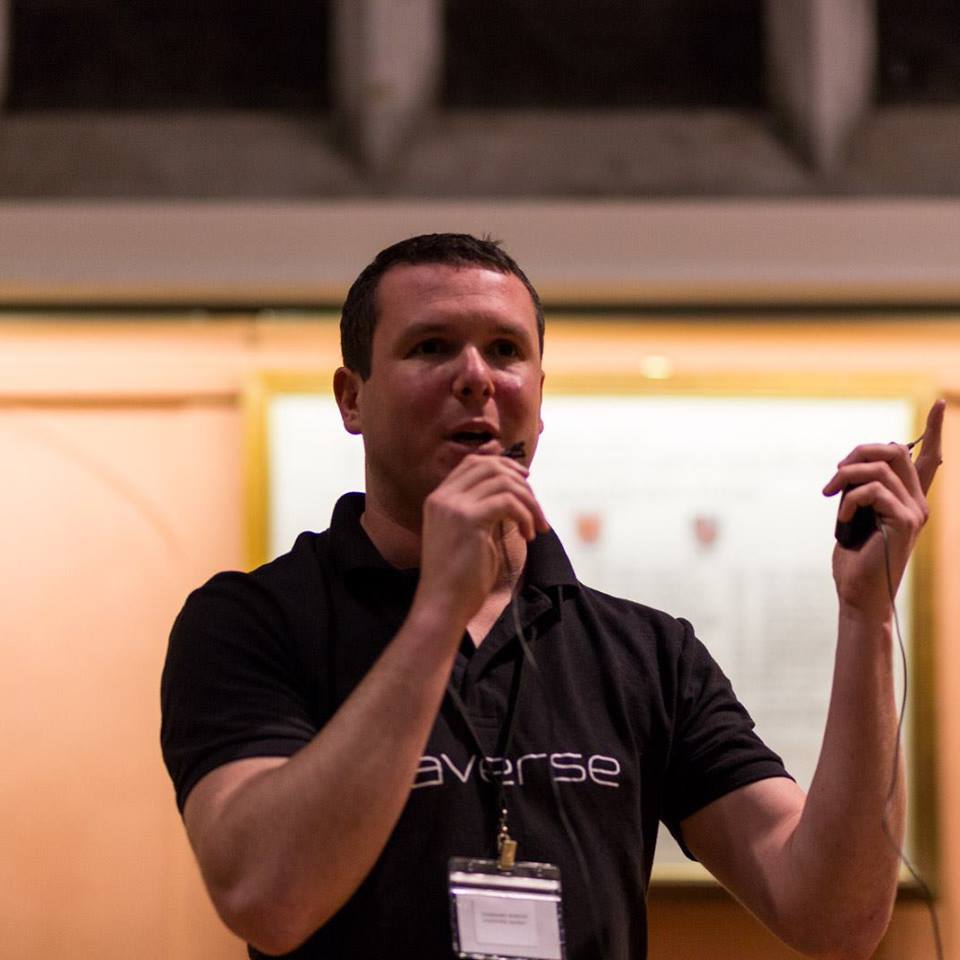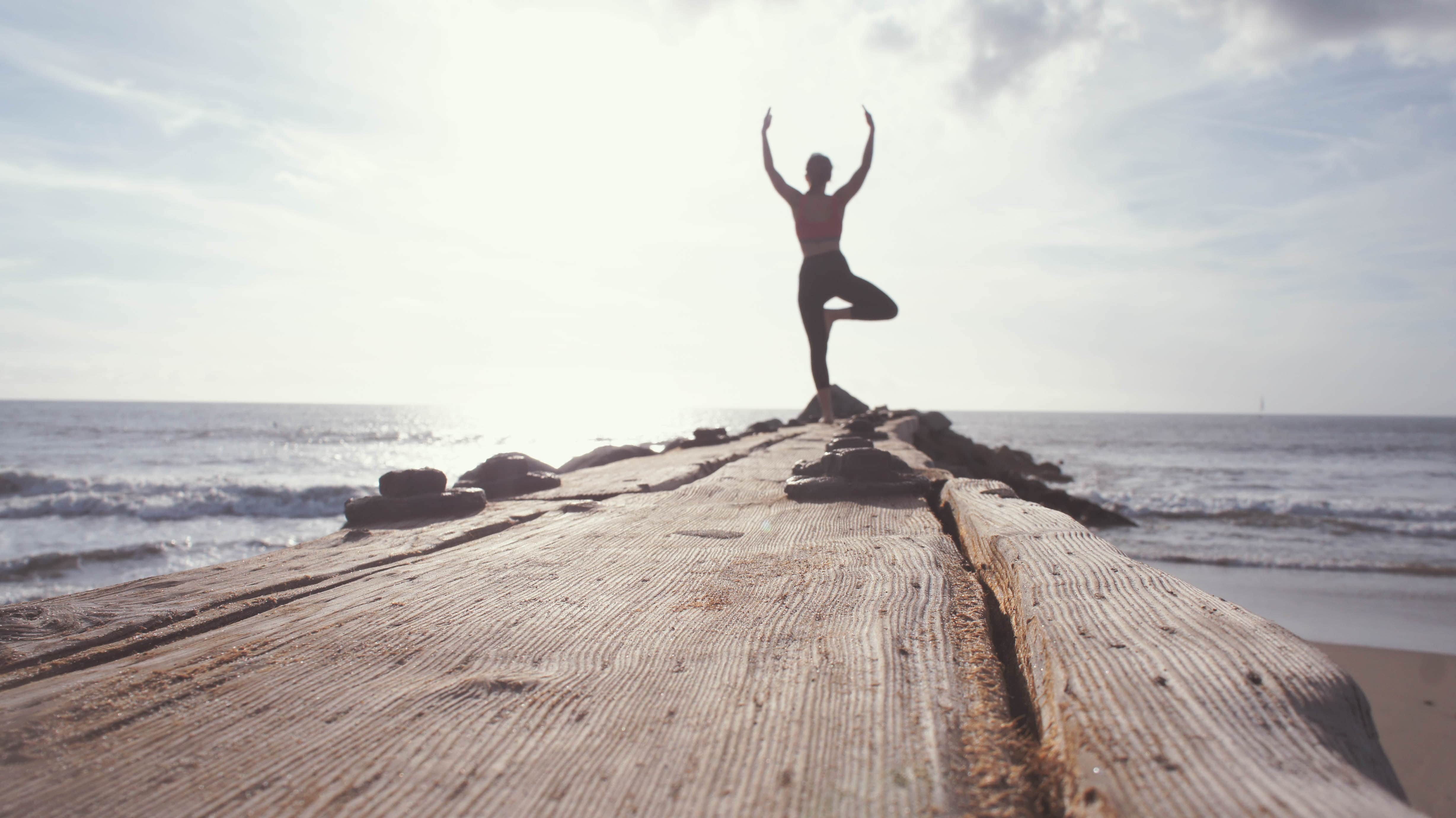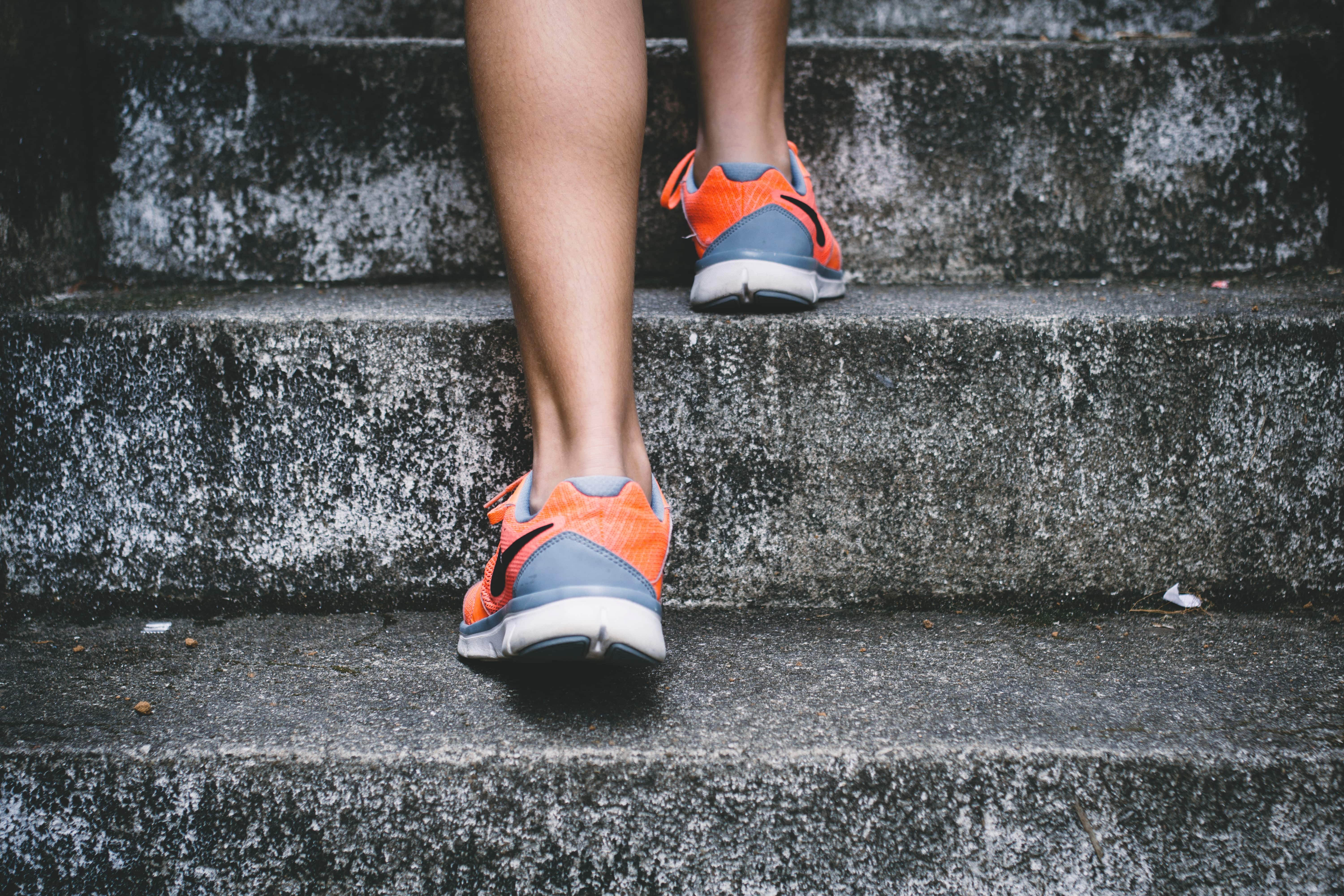Mental health and wellbeing is not something that I feel has a big enough focus when it comes to being a digital content creator and influencer. So much of the job, which is as much that as a way of life, involves putting yourself out there online for others to see, hear, watch and interact with. This is not always an easy thing to do, especially when you need to be posting about things that just don’t match the mood or frame of mind you’re in at the time.
I once read a great post comparing people on social media and icebergs. What’s visible looks incredible, it’s beautiful and calm. But that is just 10%, below the surface is what you can’t see, the 90% that is dark, cold, scary and dangerous. The longer I work in this industry, the more I feel that this is a very accurate comparison.
I also know from personal experience of the stress that can come with running a business, and this is what creators and influencers do. In most jobs, you can switch off at the end of the day if you need to, leave work in the office, forget about it for a night. This is often not the case when it comes to running websites and channels. There are plenty of times when you’re not at work, but it’s rare that you’re ever truly not working. Sending an email for work is often the last thing I do before bed and the first thing I do when i get up. Actually, those emails usually come from bed, there is just sleep in between…
Then there is the loneliness that can come with this line of work. I feel that the content creator industry can be the most social, but also most isolating of places to work. You’re out with people all the time, chatting over a glass of wine or just on social media, that is fantastic. But having no colleagues, nobody to blow of steam with after a hard day, or just go for lunch with, can be hard.
“Over the past year something I have realised myself is that mental health is just like physical health. There is no simple ‘well’ and ‘ill’.”
Over the past year something I have realised myself is that mental health is just like physical health. There is no simple ‘well’ and ‘ill’. I personally have had times when depression hovers around, insomnia too, and with that anxiety. I have been really happy that in the last few years it seems more and more people are talking about this, being open and not always pretending all is ok when it’s far from that. It was only through chatting to friends who have had, or do have, depression that I realised this is what I was going through. Just knowing what was up made me feel better, I stopped searching for reasons as to why I wasn’t feel happy and instead did what I wanted to at the time, even if that was a sofa, pizza and Brooklyn 99 for an evening. Not productive, definitely enjoyable.
I’ve been really pleased that we’ve been able to incorporate mental health and wellness into what we do at Traverse (more on that at the end of this post) and it’s been great to see the reactions to sessions we’ve run in London, Antigua and Rotterdam. Following on slightly from this, we asked on our Facebook group for some tips for helping to stay mentally fit and well. Please do note that our community are, on the whole, not licenced professionals, but that doesn’t mean they don’t share some great advice. Here is what they said.
Explore the outside world
Jonathan Riddick, from Journey Maxx
“One thing that I definitely suggest for those of us writing indoors too often is to make going out for a bit of a mini-explore more of a habit. And at the same time whilst maybe hiking or whatever be it in the vast open green or in the town high street, get your video camera and film yourself on a walk and talk where you open up about what’s on your mind and any other honest thoughts about wellbeing.”
Lisa, of Clumsy Stray Cat
“What always works for me is to do small things that help get my life in order. It can be anything, ranging from cooking a special homemade meal to rearranging my closet to writing down my goals for the next month. It can be anything really, and it helps me feel like I’ve accomplished something and am moving forward.
Some other tips: Get a haircut. Exercise. Make an effort to go outside (but be kind to yourself as well and don’t feel guilty if you end up going back home ‘cause you’re not feeling it). Spoil yourself!”
Amelia Goodhead from xameliax
“My top tips are to make sure you get outside every day, even if it’s just for 10 mins. It depends on how severe your symptoms are but a shower if you can manage it also helps, even if you’re not seeing anyone today and working alone from home with no meetings.
Talk to your friends, via voice note on WhatsApp, call or even just chat over messages to keep yourself connected with the outside world, and remember to eat.” You can check out Amelia’s business Bloom From The Darkness.
Dedicate time to being offline
Sassy Wyatt from Thinking out Loud
“Schedule in regular me time or time to spend with friends and loved ones. It’s just as important to step away and indulge in something other than work, as it is to make appointments and meet deadlines.”
Tine Haslam Nielsen, A World of Backpacking
“Set time off to be offline (delete apps that doesn’t allow you to fully unwind). I have turned off push notifications from all apps, so I wouldn’t be tempted to check my emails, message etc. all the time. I also takes days off (while travelling and at home) to explore nature without using my phone, there is no better place to unwind!”
Sarah Poitras, Travel Breath Repeat
“I’m trying to make specific rooms in my apartment no phone rooms. Like my kitchen – there’s no reason to have my phone in there when I should just be enjoying cooking.”
Vicky Philpott, Vicky’s Flip Flop
“A few things that help me with the comparisons / paranoia / self-consciousness / anxiety, are time away from screen (yoga, walking and cycling), not having Twitter and FB on the phone, other interests out of blogging that are for me (not to write about), friends who don’t give a shit about travel and blogging, just having fun with it all and every so often some forced gratitude and perspective.” Vicky’s written a whole blog post on it here.
Socialise and meet up with other people
Imma Gregorio, A World to Travel
“Being isolated working endless hours, days, weeks and months is not only depressing AF but also something that makes you stay anchored, without evolving. We need human contact!
I’ve written about isolation – and what helps me deal with it – before.” You can check it out here.
Laurel Robbins, Monkeys and Mountains
“I’m a huge believer in joining a Mastermind, ideally one that meets in person.
They’re not only invaluable from a business perspective with the right people, but they’re incredible for your mental health as well.
You meet regularly so you know that you’re getting out of the house on a regular basis seeing other like-minded entrepreneurs or influencers and you hold each accountable for your goals so it’s productive time. I find that the discussions are often around mental health just as often as they are on tactical business strategies. I.e. topics like how to deal with overwhelm, imposter syndrome, limiting beliefs, etc. It’s the same small group of people so you can be open and vulnerable. If your goal is mental health related your group will help keep you accountable which makes you more likely to take steps to achieving positive mental health.”
Or, if you can’t meet up with people, share your experiences online
Gretta Schifano, MumsDoTravel
“I live in a rural area and isolation is certainly an issue for me as a blogger, especially as my travels are fairly limited at the moment. I find mindfulness very helpful. I’m very careful about sharing personal stuff on my blog, but I found that when I wrote a post about my situation it resonated with readers. It also helped me to work out how things could improve!” She’s written a blog post on feeling trapped by motherhood here.
Know when to say no
Kate McCulley, Adventurous Kate
“One thing I’ve noticed is that I often volunteer to do errands for people during normal working hours, and sometimes that snowballs into people expecting me to be there for them. I feel bad that it’s a huge hassle for them to leave work, and I have this cool job where I can do whatever I want, so I can help them out.
Its not your responsibility to do everyone’s daytime errands. Know how to say no. You can help out a friend in a bind occasionally, but don’t get into the habit of doing everything for everyone. Your work matters.”
Meditate
Image: Unsplash @marion_michele
Darren Meredith, IzogAdventure
“I started using an app called Headspace to meditate. It helps me take a moment every day to appreciate the world around me.
My tip on looking after ones self. Take time for you, travel, make great friends.” Darren has written an article on the importance of travel.
Karen Sargent, Speaker at Traverse 19 and one half of Global Help Swap
“The key thing for me is to apply a different set of practices and beliefs to how we work today. Starting from managing our energy – not our time. There are some key things that universally lead to increased wellbeing – exercise, meditation, gratitude, connecting with others, mindset management and practicing any of these will have a direct positive effect on our sense of wellbeing.
One thing I’m experimenting with at the moment is having a morning ritual which includes some of this stuff. I’ve only done it for a couple of weeks (hello new year) but I find it sets me up in a positive way for the rest of the day.
The trick with adding or changing any behaviour is to start really small – make it impossible to fail.”
Look after your physical health
Image: Unsplash, @bruno_nascimento
Karen Alexis, Wanderlusting K
I think that it’s so important to take care of your back and ensure that your workspace is good for your physical health. I was having really severe back pain after working in less-than-ideal places/chairs. I finally saw a physiotherapist. I now have a dedicated workspace with an ergonomic chair and I try to take breaks to stretch properly.
Mike Huxley, the Bemused backpacker
“It is SO important to remember that work/life balance is essential and you should treat your job like any profession or job where you have set times to work during the week, time off to spend on you time or with your family/friends in the evening (and REAL time off, don’t open those emails), and at least a couple of days off completely away from your laptop where you can go out and live your life.
Regular exercise is SO important for your mental health too, so get away from the keyboard and go for a run or have a round or two with the punchbag a few times a week.”
Seek professional help
Elizabeth Dhokia, UK Wellness and Lifestyle Blog
“The single most important thing I have done to help my anxiety and panic disorder is to seek regular therapy. I have somebody neutral to talk to, outside of my life, who helps me through this process of untangling thought patterns, and learning ways to cope. I would recommend a therapist to everyone, it’s been unbelievably helpful.”
Do you have any ways that you cope with your anxieties and stress in order to feel better? We’d love to hear your thoughts in the comments below.
Whether you feel alone and cut off from the world, or suffer from anxiety and insomnia and have nobody to chat about it with, we are placing a greater focus on both the physical and mental well-being of content creators at Traverse 19. From the 4-14 June this summer, Traverse will be heading to the stunning region of Trentino in Italy for our annual conference, and what better place to focus on our wellbeing?
The main conference itself will take place from 8-9 June, with sessions ranging from photography, videography, business, blogging, podcasting, to name just a few. There will also be a selection of sessions led by a cognitive hypnotherapist, a business psychologist and two wonderful yoga teachers, with a focus on helping improve attendees overall mental health.
While we’d of course love to see everyone in Italy, that’s not the only way that we’d love to help. If anyone reading this wants to have a chat, grab a coffee or just vent at someone, drop us a line and we’ll try our best to arrange a catch up.
Cover image: Unsplash, @jblesly

Michael is a co-funder and director Traverse and has involved in marketing and events for the past nine years. Outside of Traverse he runs a football team, travels often and spends too much time with his dog.


3 Comments